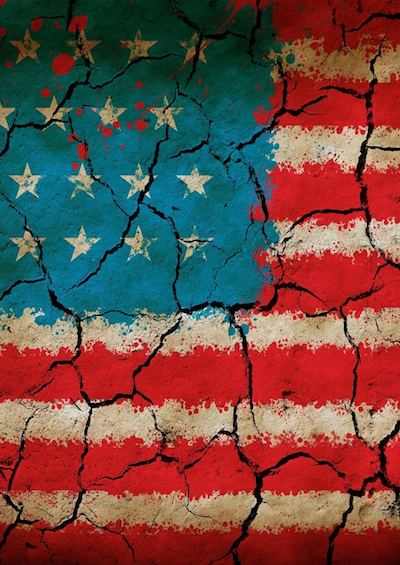When America Simply Shrugs
Despite a plethora of quite fixable problems, Americans seem increasingly inclined just to look the other way.
January 9, 2015

The New Year begins with the United States at the threshold of a war. It is not a war outside of its borders, but inside — and it is not a war fought using the military.
Second part of this essay
Given the new Republican majority in both Houses, the trench warfare pitting Congress versus President Obama will in all likelihood, from January onward, become an all-out open fight.
Obama Cunctator, Congress Terminator?
Two years from now, the president might not be able to leave much of a legacy behind – other than that of having been the first Black president in the country’s history. That is no small accomplishment, but Americans – and the world – had hoped for more.
As a result, for the next two years Europe will have to put much more effort into keeping the transatlantic relationship with an increasingly self-absorbed United States productive.
Having just spent a year teaching at colleges in the United States – not “inside the Beltway” (i.e. Washington D.C.), but on the far-away West Coast – I have the distinct feeling that this country wastes a considerable amount of time grappling with itself.
Meanwhile, the country does not give much more than a shrug of acknowledgment toward the globally spreading impression that America is a country in decline.
America’s decline? Greatly exaggerated
The immense creativity and boldness to be found in research institutions in the United States, in its universities, its enterprises and the power of its industry keep this country ahead of all others.
The country is still much more than its military hardware, contrary to the critics’ claims.
Yet, many conversations about where the country is headed, even in the U.S. itself, end with an implicit acceptance that if China and the other BRICS countries are rising, then that is how it is going to be, and there is not much that can be done about it. That acceptance then extends to the general condition the United States finds itself in.
Where one detects a clear decline is in America’s internal inability to get along with itself. It is a country characterized by internal strife – fiercer now perhaps than at any time since the Vietnam War – and by the lack of improvement in an important range of social conditions.
These shortcomings appear in healthcare, racial relations as well as electronic data surveillance encroaching upon individual freedoms. It is also characterized by the recognition that when America calls, the world does not necessarily follow.
Every challenge insurmountable?
These are challenges that a vibrant, confident United States would have gladly tackled, and treated not as obstacles to but as opportunities for improvement.
Today, the challenges are seen as obstacles or impasses, and they lead to resignation, and, worse, to withdrawal from public engagement – formerly one of the strongholds of American civil society.
The problems are certainly there, and they are not small.
Perhaps the singular legacy that President Obama had wanted to leave behind was Obamacare. With eight million people signing up right after its inception, and the trend continuing, it is not a failure – except in popular perception.
But perception is what carries weight in politics. Overall success is underreported, while incidences of failure are widely narrated, and not by the conservative media alone. There is astonishing doubt as to whether something as complex as Obamacare can be achieved in the United States at all.
Instead of pulling together and overcoming whatever hurdles present themselves by aligning all domestic forces to get the job done, here again the response is just a shrug.
On another front, Ferguson and other racially tainted incidents reveal the depth of wounds left behind by slavery – and show how easily they will reopen. Yet, these incidents motivate American society to little more than a (temporary) exercise in crisis management or to make rhetorically charged, but ultimately empty complaints about how grave the problem is.
Much talk, little action
A foreign observer like me wonders what it would take to provoke an effort to tackle a problem that is visible in so many small phenomena.
All of them seem to be remediable, be it housing and employment of African-Americans, underlying racism in White society, or violent protests that require new measures. The president has given a remarkable speech on the issue of race, to no more effect than fleeting marvel and faint praise.
On this issue, the president’s heritage might even be a drawback. He was raised by his white family, but does not look white, and yet cannot overcome the fact that he is also not a descendant of slaves. As the son of a Kenyan immigrant, he does not carry the same burden of the African-American community’s collective memory on his shoulders.
Conversations on privacy and technology
The NSA scandal, in the aftermath of the Snowden revelations, has led to profound, worldwide discussions about electronic monitoring of all human activity.
These discussions pertain to issues that used to be seen as the core of the American project, such as individual freedom and its limits, the social compatibility with what is technologically possible, and the responsibilities of enterprises compared to those of the realm of politics.
What is remarkable at this juncture is that these conversations in the United States about data control have largely remained confined to the sphere of intellectuals. There has been little effort to hold Congress accountable to implement at least the recommendations given by “The President’s Review Group on Intelligence and Communications Technologies” of December 2013.
The explanation given for why that is so usually elicits the rather resigned response that things never change anyway. It is seen as pointless to go up against Big Business or the security establishment. Once again, America simply shrugs.

